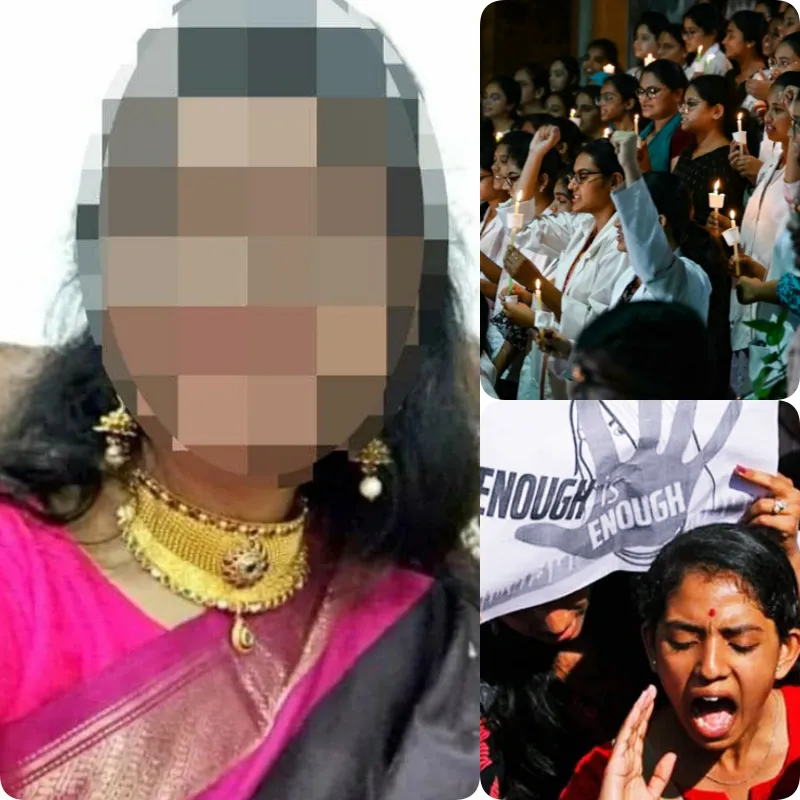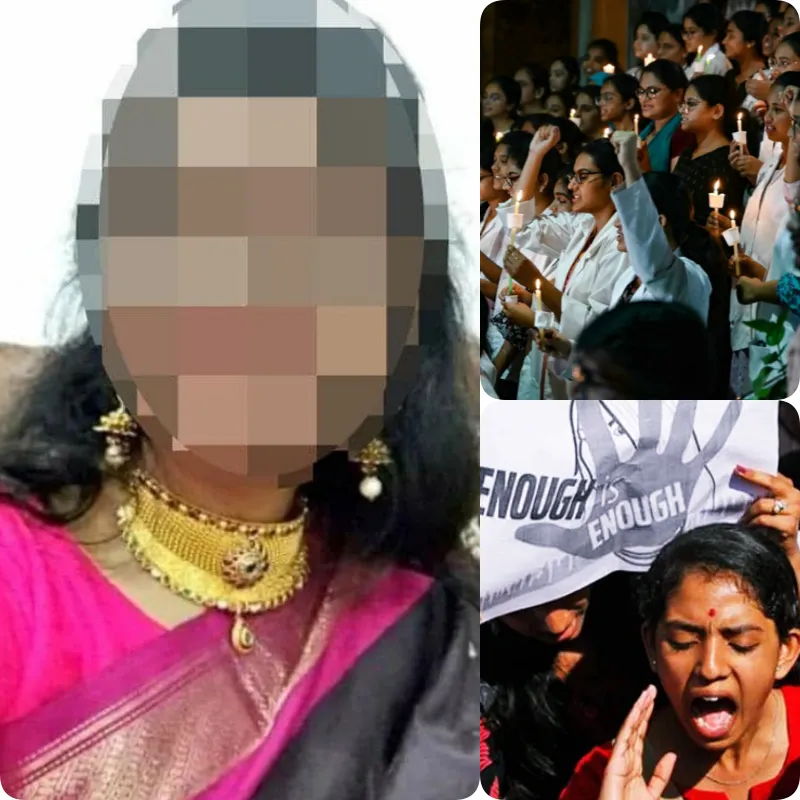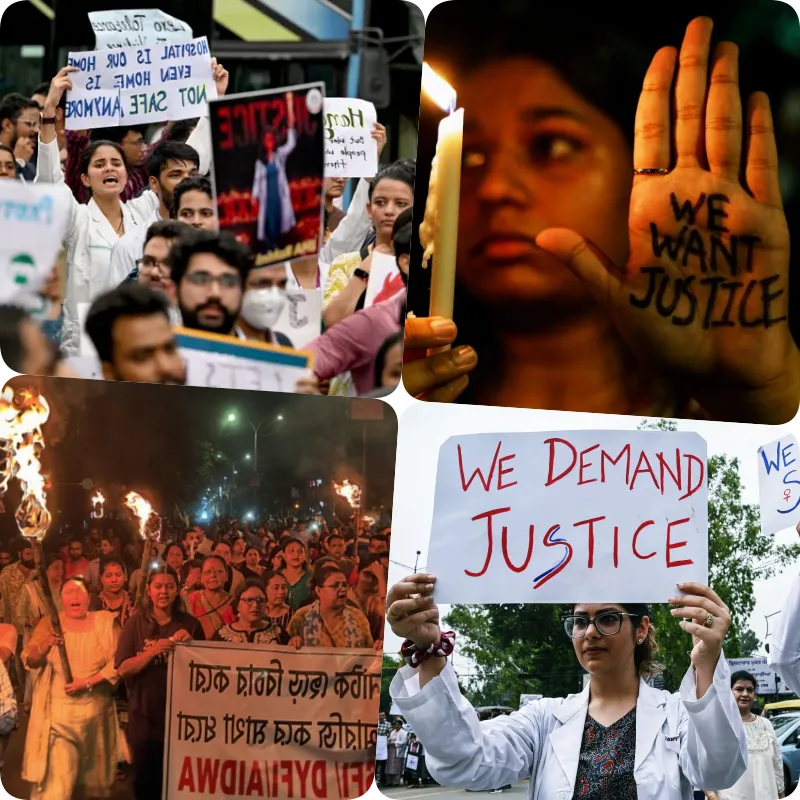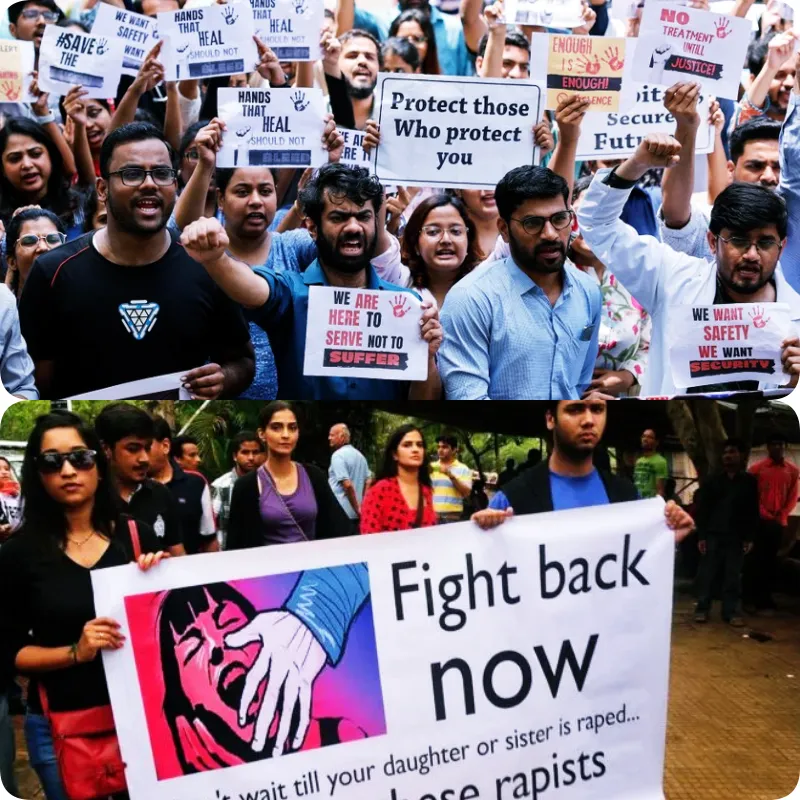
India Faces Protests After Alleged Gang Rape and Murder of Female Doctor
India is currently experiencing a wave of intense protests following a shocking incident involving a 31-year-old female doctor in Kolkata, West Bengal. Preliminary investigations suggest that this doctor was allegedly gang-raped before being murdered, igniting public outrage and demands for justice.

The incident occurred on August 9, when the doctor was found dead on a blood-soaked mattress in a hall at RG Kar Medical College, where she worked. The victim’s father stated that the last time the family had contact with her was around 11:15 PM on August 8. He questioned the delay in discovering her disappearance, as her body was not found until 10 AM the following morning. The police have launched an investigation and identified several suspicious elements surrounding her death but dismissed rumors suggesting it was a suicide.
Public anger escalated further when former Information and Broadcasting Minister Smriti Irani revealed that police had found 150 ml of semen at the scene, raising suspicions of a gang rape. Irani also questioned why no one heard anything when the incident occurred. The victim’s father accused the entire department where his daughter worked of being suspects and called for a thorough investigation by the Central Bureau of Investigation (CBI). The CBI assured the victim’s family that the suspects would soon be arrested and brought to justice.

The incident also led to the resignation of Dr. Sandip Ghosh, the principal of RG Kar Medical College. The CBI is currently interrogating him along with other suspects to uncover the truth behind the crime. The National Commission for Women (NCW) conducted a preliminary investigation and found significant lapses in the initial inquiry, raising concerns that evidence may have been compromised due to inadequate security at the medical facility.
The wave of protests and criticism has spread beyond the local level, igniting demonstrations across India. Political parties, including Prime Minister Narendra Modi’s Bharatiya Janata Party (BJP), organized numerous protests demanding justice for the victim. Violence erupted on August 15 as protesters clashed with police. By August 16, police had arrested 24 people involved in violence and vandalism at RG Kar Medical College, along with around 1,500 other protesters for disrupting public transportation.
The BJP called for the resignation of West Bengal Chief Minister Mamata Banerjee, citing deteriorating law and order under her leadership. In response, Banerjee led a silent march to protest what she described as baseless accusations and the alleged involvement of the BJP and other opposition groups in the vandalism at RG Kar hospital.

The protests have significantly impacted healthcare services nationwide. The Indian Medical Association announced a 24-hour suspension of all modern medical services from August 17 to August 18, while still maintaining basic healthcare services for patients. Protests and strikes have spread to other parts of India, further exacerbating the country’s instability.
This incident underscores the ongoing challenge of violence against women and girls in India, particularly gang rapes. Despite improvements in the country’s criminal justice system following the 2012 gang rape that shocked the world, many women’s rights activists argue that much more needs to be done to protect women and children from such heinous crimes.



